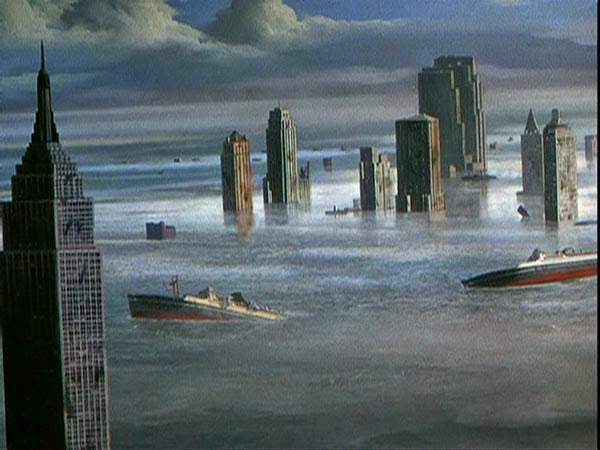Cooper (Matthew McConaughey), an ex-NASA pilot turned farmer, lives in a future where that career transition is a necessity as the world's food supplies are running dry. The governments need farmers, not explorers. His daughter, Murph (Younger: Mackenzie Foy, Older: Jessica Chastain), is convinced a ghost is trying to communicate with her and upon analysing the messages, Cooper begins to believe gravity is forming co-ordinates in the dust that has engulfed the world and his house. They follow the co-ordinates and stumble on the biggest secret on Earth: a mission to save all of humanity. Cooper gets invited to pilot on the mission to explore the discoveries of the Lazarus Project, a previous expedition to find planets capable of supporting Earth's population. Three planets, on the other side of a wormhole, show promise and Cooper, with his team of fellow scientists Brand (Anne Hathaway), Doyle (Wes Bentley), and Romilly (David Gyasi), as well as robots, TARS and CASE (both operated by Bill Irwin, though CASE is voiced by Josh Stewart), are going to have to battle time and gravity in order to preserve their resources and get home to their families and Professor Brand (Michael Caine) to send the human race to the stars.
 |
| A pretty cool planet. |
A star studded plot needs a star studded cast, and Interstellar provides just that. After winning an Oscar for Dallas Buyers Club in February, McConaughey has wasted no time in picking up further ambitious acting projects, and he does not disappoint here. Flicking effortlessly between fun-loving dad, deadly serious pilot, and emotionally driven missionary, Cooper is a hugely diverse and opinionated protagonist that the audience cannot help but root for. Hathaway's Brand creates a powerful contrast to Cooper who also, paradoxically, perfectly compliments his aims, ambitions, and ideas. The relationship between the two builds tension and disjuncture, but ultimately creates an important and entertaining bond. Most memorably, though perhaps this is is arguable, is Bill Irwin's TARS. Not only voiced, but physically controlled by Irwin, TARS steals almost every scene he is in, not only as a looming presence, but as a hilariously funny and accessible character. Irwin's comic timing is impeccable, delivering TARS' humour settings in a gloriously deadpan voice. Minor spoiler warning. Move on to the next paragraph to avoid: Matt Damon's Dr Mann is a wonderful addition to both the cast and plot, His initial joy to see another human face is both heartbreaking and overwhelmingly happy. His brief development, from Earth's best hope to biggest coward, is some of the strongest and most powerful in the film.
 |
| 'That must have been one really small step for man...' |
Ambitious, astonishing, and outstanding. A visual masterpiece full of intellect,laughs, sorrow, pain, and love. With constant references and homages to other great science-fiction (namely 2001: A Space Odyssey), Interstellar is a must see for all. Nolan continues his stream of great films with, arguably, his most fully formed creation.
Best Bit? A multitude of options in this film, but for me it has to be the first planet in which huge waves come hurtling towards the ship and its inhabitants as they look for data from the Lazarus Project. A thrillingly suspenseful series of events.




























